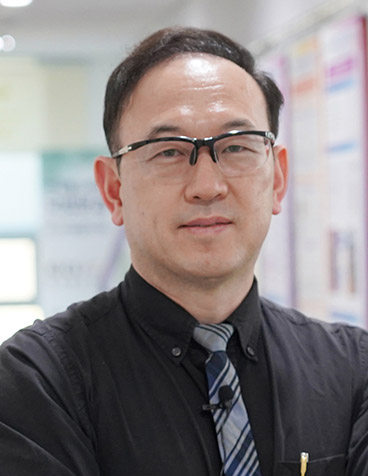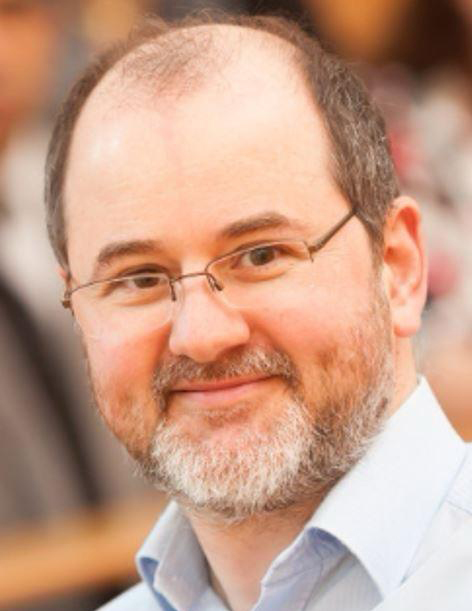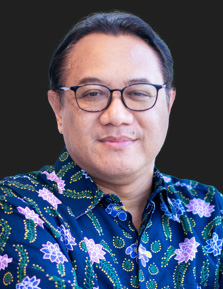Programs
Keynote Speakers

Prof. Dong-Seong Kim
Kumoh National Institute of Technology, South Korea
Industrial Blockchain Application: Pure Chain and Pure Edge
Abstract:
Blockchain technology is significant in modern industrial processes, such as supply chain management, healthcare, and manufacturing. It achieves this by leveraging decentralized networks to enhance transparency, security, and efficiency while reducing operational costs.
Therefore, Pure Chain and Pure Edge aim to form a robust blockchain ecosystem designed to address the critical blockchain quad-lemma of decentralization, security, scalability, and gas cost, which is tailored specifically for industrial applications. This ecosystem integrates five synergistic components to deliver sustainable, reliable, and efficient solutions for enterprise-grade blockchain deployment. It comprises two advanced enhancement algorithms—Smart Auto Mining Plus (SAM+) and Proof of Authority and Association (PoA2)—and three specialized blockchain networks: NSL Layer 2 (NSL-L2), NSL Core Layer 1 (NSL-CL1), and an Augmented Layer 1 blockchain. Pure Chain and Pure Edge provide a scalable, secure, and cost-effective framework optimized for industrial use cases, ensuring seamless integration and high-performance blockchain solutions.
Biography:
Dong-Seong Kim is the CEO/CTO of NSLab Inc. and a full professor of the School of Electronic Engineering, KIT Kumoh National Institute of Technology (KIT) in South Korea. He is also the ICT-Convergence Research Center director at KIT. He received his Ph.D. in Electrical and Computer Engineering from Seoul National University, Seoul, Korea 2003. From March 2003 to February 2005, he worked as a visiting scholar and researcher at the Wireless Network Laboratory in the School of Electrical and Computer Engineering at Cornell University in NY, USA. From 2007 to 2009, he was a visiting professor at the Department of Computer Science, University of California, Davis, CA, USA.
Professor Kim has held several leadership positions, including Dean of the Industrial Academic Cooperation Foundation (2019–2022), Director of the KIT Convergence Technology Institute (2015–2019), and Director of the Military System Research Institute (2015, 2021–2022). He currently leads the Networked Systems Lab. He is also Vice President of the Korean Institute of Communications and Information Sciences (KICS) and President of the Military and Civil IT Convergence Society under KICS. He has contributed extensively to national R&D policy, serving as a National Research Council of Science and Technology committee member and as a planning lead for Defense ICT initiatives at NRF and IITP. As a life member of prominent organizations including ACM, AFCEA, IEIE, KICS, and KSII, Prof. Kim continues to advise key defense and technology bodies such as the Ministry of National Defense, the Ministry of Science and ICT, and the Naval Ship Technology Research Institute.
His research interests include Industrial IoT and Blockchain technology, Real-time Embedded systems, and Industrial and military networks.
Further information: https://sites.google.com/view/profdskim

Prof. David R. C. Hill
University of Clermont Auvergne, France
Digital Transition and Artificial Intelligence for Good: Towards Ethical and Sustainable Energy Consumption?
Abstract:
The digital transition has become ubiquitous, accelerating markedly since many years. Although countries and companies are ‘dematerializing’ many activities, this shift remains deeply material, manifesting discreetly in data centers, network infrastructures, and the production of diverse digital devices. Among all digital technologies, artificial intelligence (AI) has shown recently a significant impact on energy consumption, primarily due to the computational intensity of training AI models and data processing. On the other hand, AI can also help reduce the energy consumption and emissions by optimizing the energy systems and enabling the transition to low-carbon sources. But this could also provoque a rebound effect as observed with other digital technologies. Being aware of the Jevons’ paradox, this article synthesizes findings from various studies to highlight two key points: first, the growing environmental footprint of digital technologies, particularly in terms of electricity consumption; second, the necessity and opportunity of steering digital development towards greater sustainability. We argue that a more frugal digital model is not only feasible but also essential to support the broader ecological transition, notably with the massive adoption of artificial intelligence. The reducing of the energy footprint of artificial intelligence involves a combination of efficient model design, hardware improvements, data management, and policy measures to promote a sustainable development and deployment. These efforts are crucial to harness the benefits of AI while mitigating its environmental impact.
Biography:
David R. C. Hill is a Full Professor of Computer Science at the University of Clermont Auvergne (UCA), conducting his research at the French National Centre for Scientific Research (CNRS) in the LIMOS laboratory (UMR 6158). He earned his Ph.D. in 1993 and his Research Director Habilitation in 2000, both from Blaise Pascal University, where he later served as Vice President (2008-2012). He is also a former Director of the French Regional Computing Center (CRRI) (2008-2010) and has twice been appointed Deputy Director of the ISIMA Engineering Institute of Computer Science (2005-2007; 2018-2021) – ISIMA is part of Clermont Auvergne INP, the #1 Technology Hub in Central France. He currently serves as the Director of an international graduate track at Clermont Auvergne INP, overseeing four different Master’s programs. Prof. Hill has authored or co-authored more than 280 papers and has published several scientific books. He recently supervised research at CERN in High-Performance Computing.
Further information: https://isima.fr/~hill/

Prof. Kosuke Takano
Kanagawa Institute of Technology (KAIT), Japan
Emotion AI in Education
Abstract:
This keynote presents our recent study on emotion AI designed for AI student interaction in education. With the advancement of large language models (LLMs), their human-like interactive capabilities are accelerating the development of AI-powered tutoring systems and their integration into educational practice. By leveraging AI in education, students can easily access the information they seek. However, relying on AI solely to obtain answers, without engaging in the learning process, poses the risk of diminishing learners’ autonomy. Moreover, sustaining student motivation is a critical component of effective learning support. To address these challenges, we have been developing personalized educational systems that aim to enhance student motivation and satisfaction, while effectively leveraging AI capabilities, particularly by introducing emotional efficacy into the learning process. In this keynote, we first introduce the logical design of our emotion AI, which constructs an emotion profile consisting of internal and contextual emotions through interactions between the AI and the student. Next, we present our educational practice and a prototype of an AI-supported system implemented in an introductory programming course at our university. Finally, I will conclude with an overview of our ongoing research and future directions, including Peer AI – a system designed to offer a learning experience similar to studying with a classmate.
Biography:
Kosuke Takano is a distinguished faculty member at the Kanagawa Institute of Technology (KAIT), serving as a professor in the Department of Information and Computer Sciences. He specializes in data science and digital intellectual activity management. His research interest include search engine for multimedia data, filtering and recommender systems, web search and data mining, human information interaction and personalized search, and database application in education, commerce, social network.

Prof. Amang Sudarsono
Politeknik Elektronika Negeri Surabaya
Enabling Security and Anonymity in The Internet of Vehicle Using Group Signature with Pseudonym Identity Hopping
Abstract:
With the advancement of technology in the Internet of Vehicle (IoV) and its communications, assurance the security and privacy preservation of communicating vehicles and any other participants becomes a mandatory challenge. This work proposes an anonymous authentication scheme in these communications which utilizes a group signature with pseudonym identity hopping in every session of communication to pursue security and privacy protection issues in Vehicular Ad-hoc Networks (VANETs). Our approach ascertains the privacy of vehicle identities while carrying out efficient anonymous message authentication and traceability. Through wireless local area network experimental, we showed the excellence of our scheme in terms of computational cost, communication overhead, and storage usage efficiencies, while maintaining strong resistance to various potential attacks. The measurement results indicate that our proposed scheme provides a quite practical in dealing with security and communication needs with costs of processing time within a second.
Biography:
Amang Sudarsono received the B.E. degree in electrical engineering, telecommunication and multimedia program from the Sepuluh Nopember Institute of Technology, Indonesia, in 2001, and the Ph.D. degree in communication network engineering from Okayama University, Japan, in 2011.
From 1997 to 2002, he was at the Network Engineering Division, Metro Cellular Nusantara, Ltd., Indonesia. He joined as a Lecturer with the Division of Telecommunication Engineering, Department of Electrical Engineering, Politeknik Elektronika Negeri Surabaya (Electronics Engineering Polytechnic Institute of Surabaya), Indonesia, in 2002. His research interests include privacy-enhancing authentications (group signatures), network and information security, and cryptography.
WORKSHOPS
Workshop on Immersive Technology
Workshop on AI & 5D World Map System
Workshop on Intelligent Wireless Networks
Workshop on Innovation for Energy Security
Workshop on Intelligent Transportation Systems
Workshop on Human-Machine Synergy
Tracks
IES-ETA
International electronics Symposium on Engineering Technology and Applications
Join us in International Electronics Symposium on Engineering Technology and Applications (IES-ETA) 2025. The symposium is focusing on practical application of science and engineering to a wide range of real world problems, delivering the engineering technology from laboratory to marketplace. IES-ETA 2025 brings technology and business leaders, experts from academia, and government together to materialise the ideas. On behalf of our symposium organizers we warmly invite you to submit your full paper and participate in this exciting international event
Topics of Interest
Power engineering and Energy Technology
- Power Quality and Electromagnetic Compatibility
- High Voltage Engineering and Insulation Technology
- Power Generation Technology
- Power System Dynamic, Stability and Control
- Power System Protection, Reliability and Security
- Electric Power Transmissions and Distributions
- Power Electronic Converter Topologies, Design and Control
- Switch-Mode Power Supplies and UPS
- Electric Drives and Electrical Machines
- Renewable Energy and Smart Grid Technology
- Energy Storage System and Technology
Telecommunication Engineering Technology
- Electromagnetic Compatibility
- Electromagnetic and Radio Propagation
- Wireless and Mobile Communications
- Telecommunication, Propagation and Networking
- Computational Electromagnetics and Electromagnetics Simulation Technology
- DSP real-time encoding technology and signal Embedded Systems
Electronics Systems and Electrics Technology
- Biomedical Engineering
- Microelectronic Circuits and Systems
- Measurement and Instrumentations
- Nano Technology
- Micro-Electro-Mechanical System
- Sensor, RFID, and Electronic Design
- Material and Device
- Vehicular technology
Robotics Technology and Control Systems
- Robotic Vision
- Intelligent Robotics
- New Mechanism and Mobility
- Networked/Ubiquitous Robotics
- Disaster Robotics
- Humanoid Robot
- Service Robotics
- Nano/Micro Robotics
- Surgery Robot
IES-KCIC
International Electronics Symposium on Knowledge Creation and Intelligent Computing
Knowledge creation is becoming more important topic for researchers and users in academic, management and industrial fields. The term has been widely used for the last couple of years, and refers to the formation of new ideas through interactions between explicit and tacit knowledge in individual human mind. To realise knowledge creation in real life, it is essential to transform human mind into computation in order to extract potentially useful information from data and create valuable knowledge. The use of intelligent techniques in computing-related fields can be useful to retrieve meaningful result in automated processes for knowledge creation.
Post Conference:
Topics of Interest
Immersive Technology and Interactive Media
- Virtual engineering
- Digital twin technology
- Immersive digital experiences
- Pervasive game technology
- Gamification
- Audio and video technology
Knowledge Base and Engineering
- Information modelling
- Knowledge acquisition and accumulation
- Knowledge discovery
- Knowledge management
- Information systems and applications
- Human-computer interaction and Modelling
- Intelligent optimization
Intelligent Multimedia Systems
- Multimedia modelling
- Multimedia computing systems and applications
- Intelligent multimedia analysis and processing
- Web intelligence
- Web-based support systems
- Multimedia information retrievals
Computational Intelligence
- Learning and adaptation
- Perception and learning
- Emotion modellin
- Cognitive sciences
- Probabilistic and reasoning computation
- Reinforcement learning
- Statistical methods and data mining
- Pattern recognition
- Artificial intelligence and soft-computing
Applied-Computing Sciences
- ICT-based environmental studies and computations
- Social-based computing model and analysis
- Social media engineering
- E-Learning and educational computation
- Cross-cultural computation and modelling
- Disaster management computing and support systems
- Medical computing analysis and applications
- Robotics computing model and applications
- Intelligent text processing and Computational linguistics
- Linguistic knowledge modelling and representation
